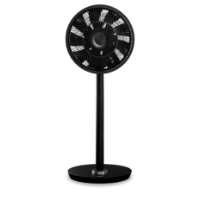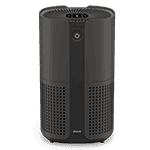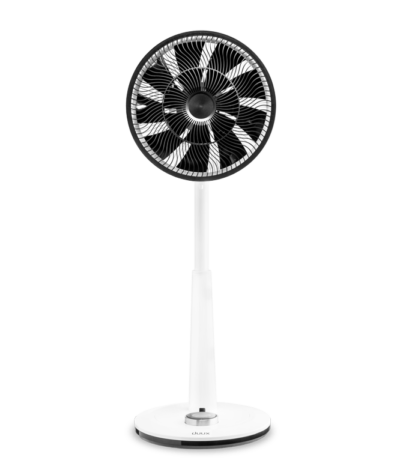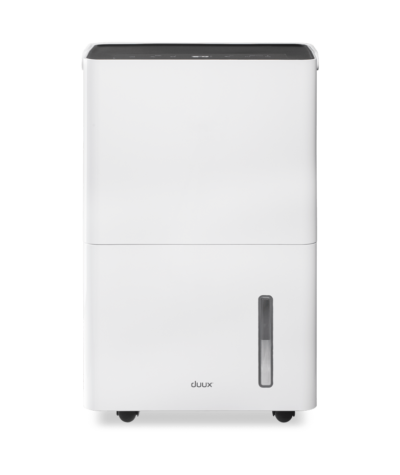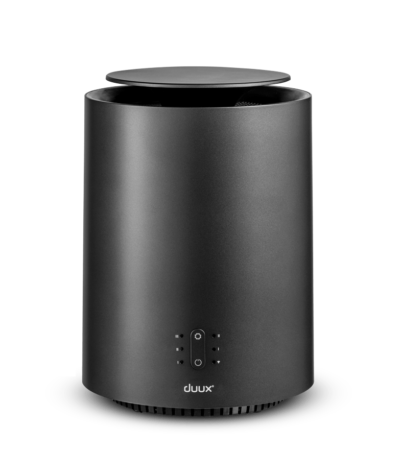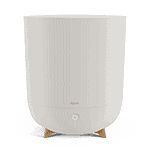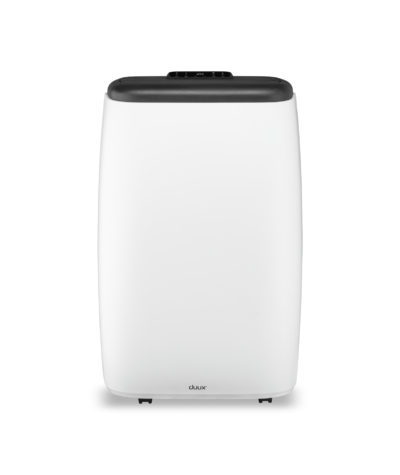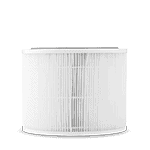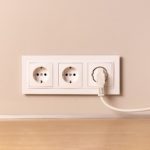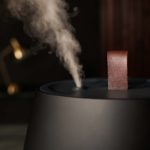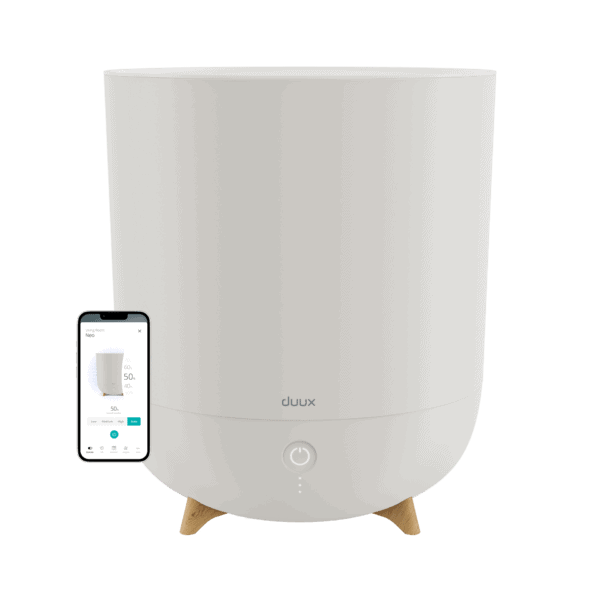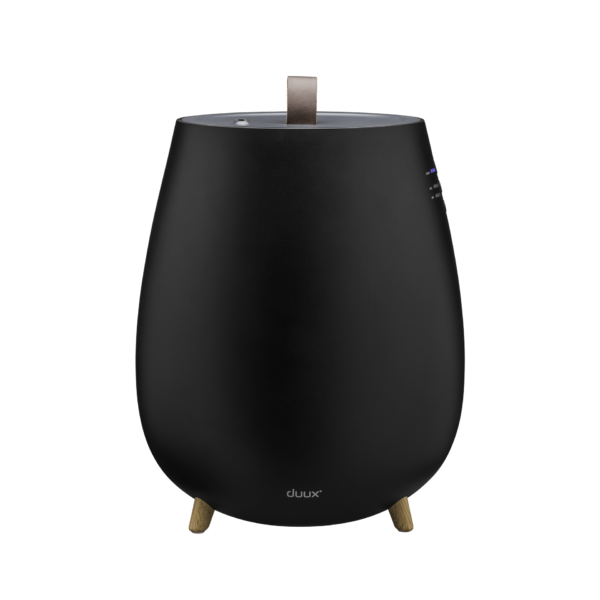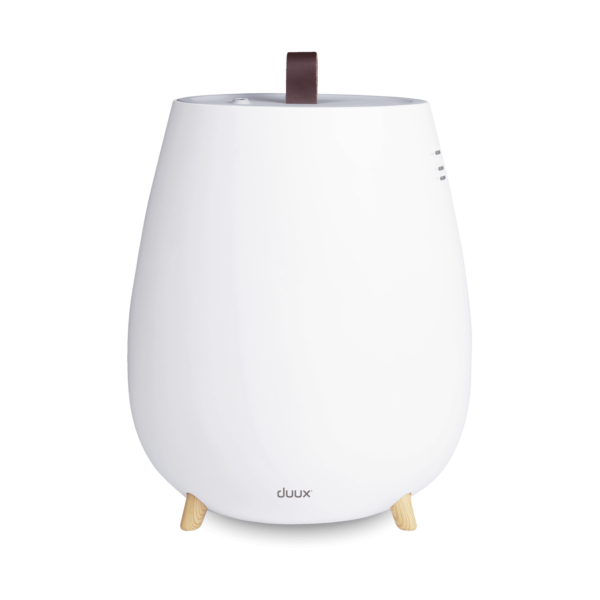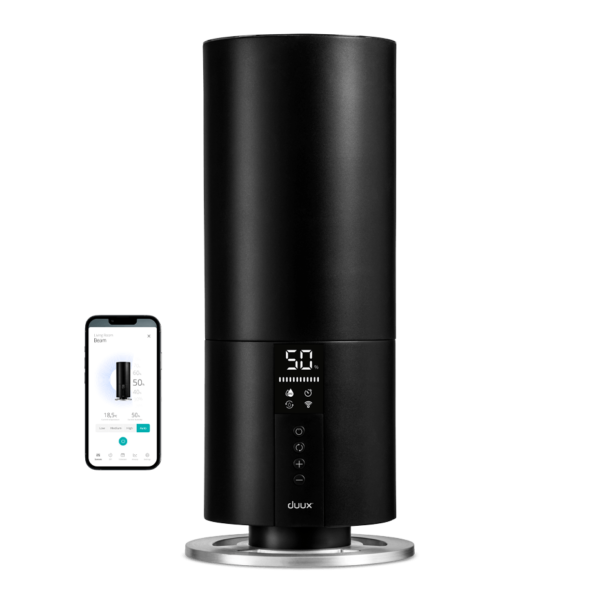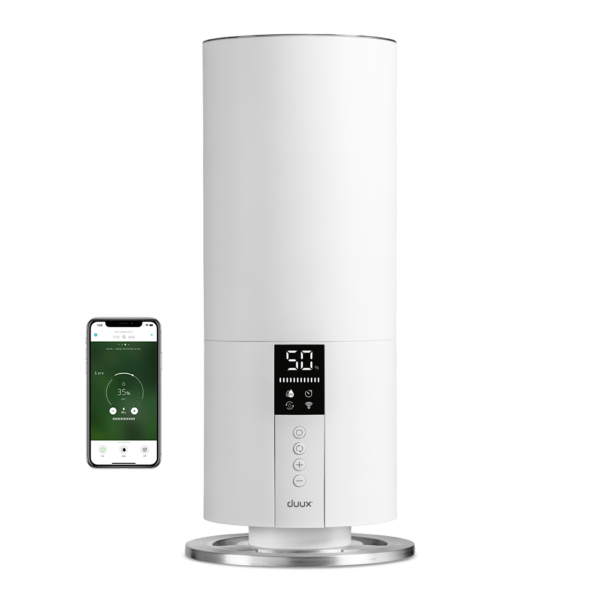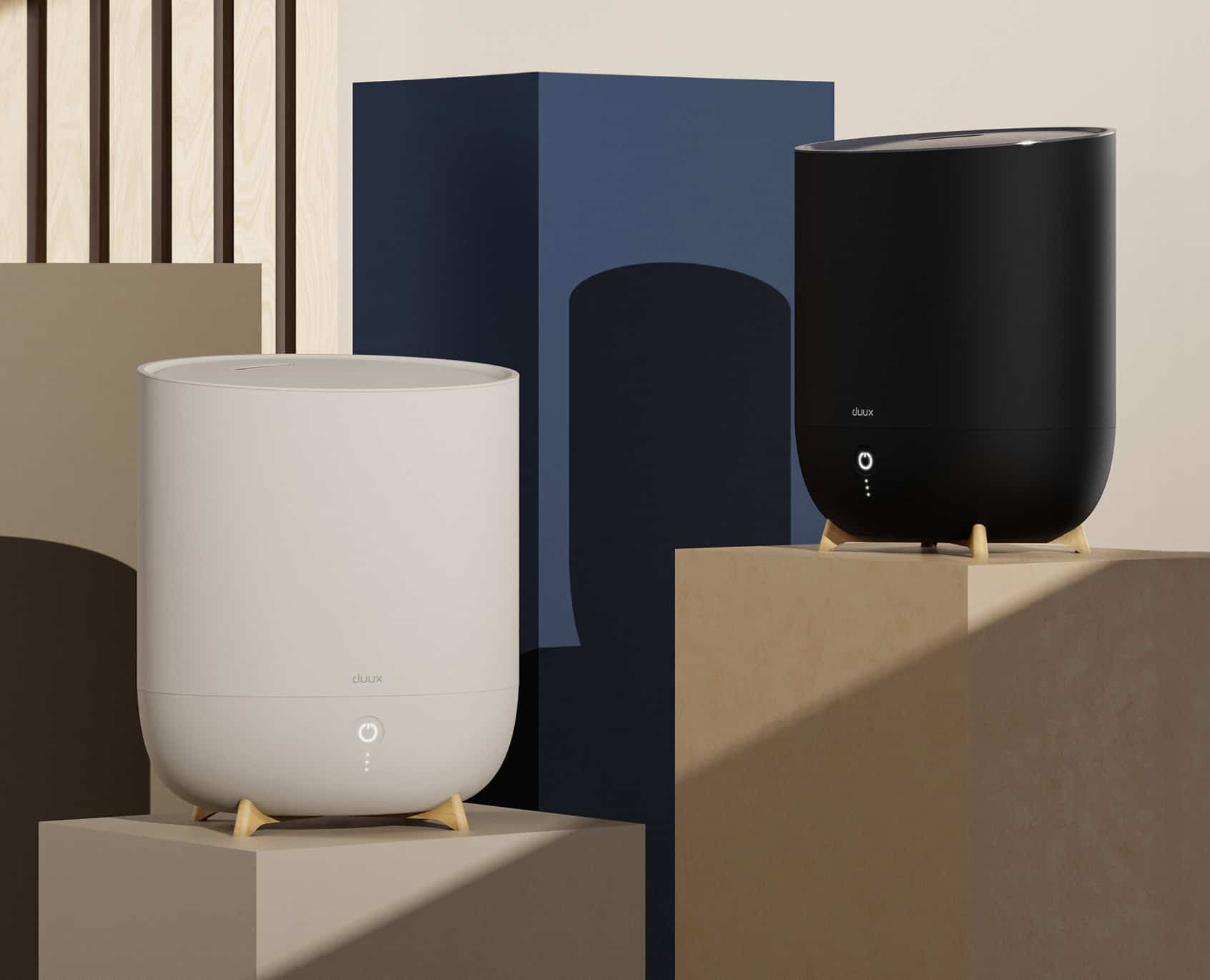
What is humidity?
Humidity is a unit that indicates how much moisture is in the air. It is usually expressed in relative humidity, which is the amount of water vapour currently in the air in relation to the maximum amount of water vapour the air can contain. This maximum amount depends largely on the temperature; the higher the temperature, the more water vapour the air can contain. As a result, most people suffer from dry air mainly during the colder periods in autumn, winter and spring.
Good humidity is also conducive to...

Wooden floors and furniture

Houseplants

Dry skin, lips and eyes

Pets
How do you measure relative humidity?
Relative humidity is easy to measure with a hygrometer, such as Sense. If the percentage on the hygrometer is between 40 and 60 percent, the humidity in the room is optimal. If the percentage is below 40 percent, the humidity is low, in this case the air is too dry. If the percentage is higher than 60 percent, on the other hand, the humidity is high, in this case the air is too humid. Both scenarios are accompanied by various symptoms that you can recognise. In practice, however, these symptoms are not always linked to the cause - read: high or low humidity.
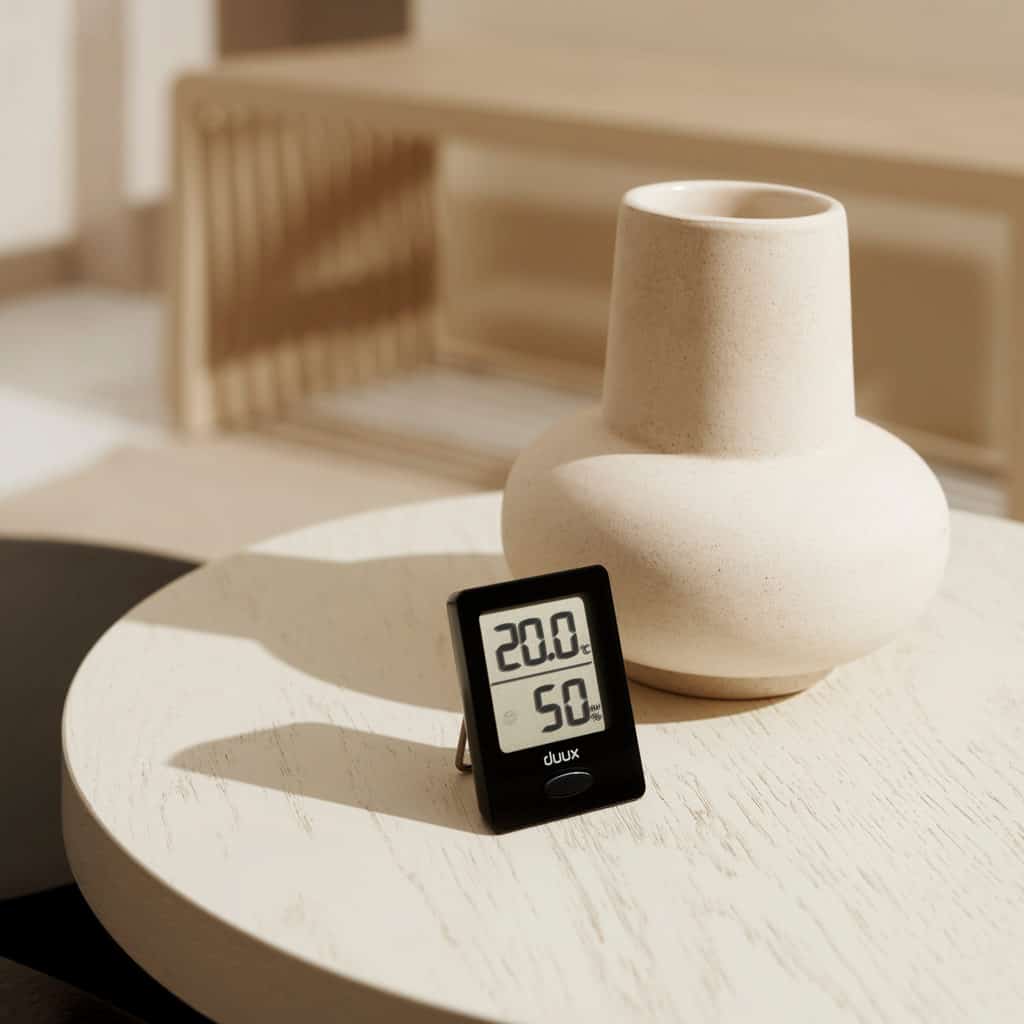
What do you notice about low humidity?
Although low humidity is difficult to detect without a hygrometer, there are several symptoms that you can easily recognise yourself. For example, health complaints such as dry skin, eyes or lips, irritated airways, headaches, impaired concentration, fatigue or a stuffy nose indicate that the indoor air is (too) dry. Other important indicators are static electricity and cracks in wooden floors or furniture.
Dry skin
When humidity is low, the amount of water in the skin decreases, causing the skin to (partially) lose its elasticity. As a result, the skin can become irritated, itchy or even broken more easily, as is the case with cracked lips. Dry eyes can also occur.
Airways
(Too) dry air irritates the airways, which can aggravate asthma, COPD and allergic reactions.
Headache
When the air is (too) dry, it is more difficult for the alveoli to absorb sufficient oxygen from the inhaled air. As a result, less oxygen may enter the bloodstream, causing headaches, difficulty concentrating and fatigue.
Concentration
When the air is (too) dry, it is more difficult for the alveoli to absorb sufficient oxygen from the inhaled air. As a result, less oxygen may enter the bloodstream, causing headaches, difficulty concentrating and fatigue.
Fatigue
When the air is (too) dry, it is more difficult for the alveoli to absorb sufficient oxygen from the inhaled air. As a result, less oxygen may enter the bloodstream, causing headaches, difficulty concentrating and fatigue.
Cold
Low humidity not only causes colds, it also makes you more susceptible to colds and/or flu. This is because virus particles remain in the air longer when humidity is low.
Static electricity
Water ensures that electrons can be conducted well, so there is less static electricity when there is a lot of moisture in the air. In winter, the humidity in the air is often low, so things become static more quickly.
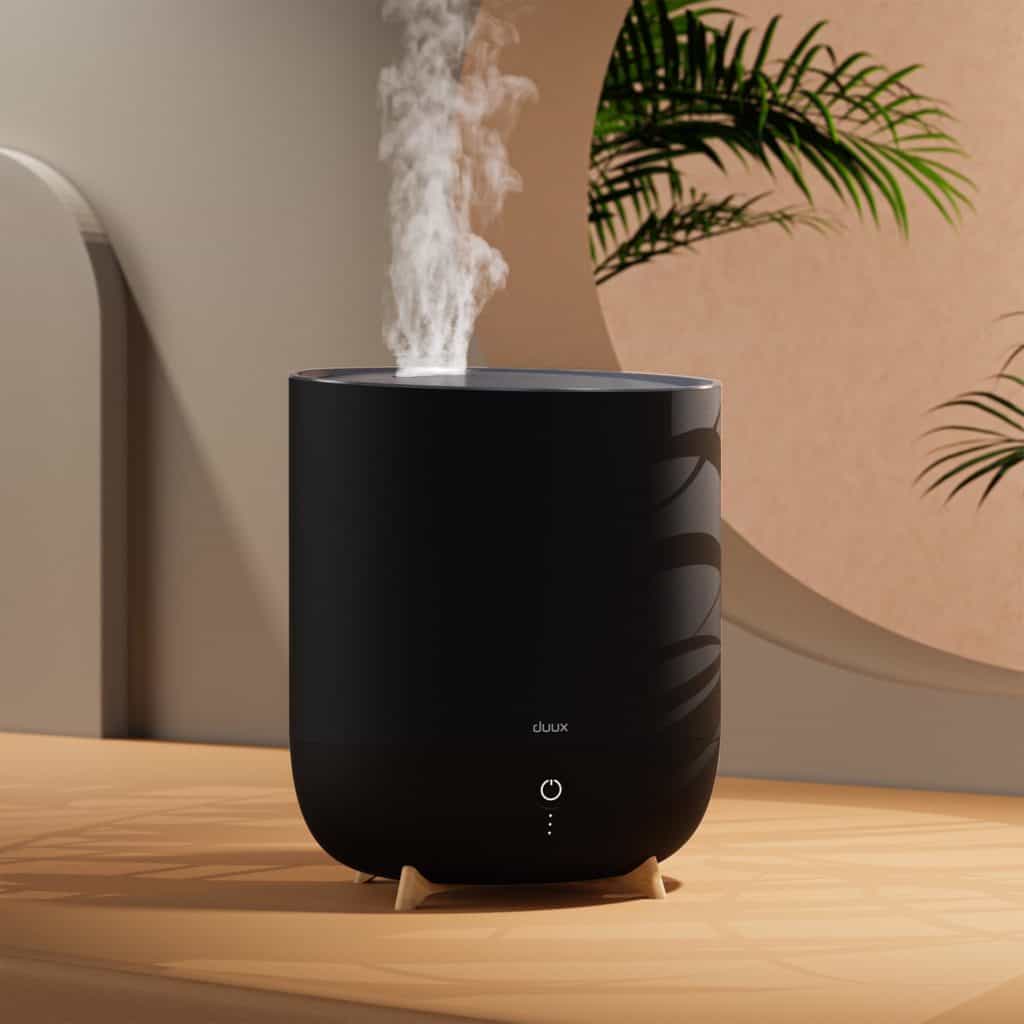
What to do about dry air in the house?
If you suffer from low humidity in your home, you can effectively increase it by using a humidifier. A humidifier is a device that spreads water vapour through the room, thereby increasing the amount of water vapour in the room and raising the humidity. How this process works exactly depends on the type of humidifier. Our range consists of ultrasonic humidifiers, cold water evaporators and humidifiers with a cleaning function. Find out which type of humidifier suits you best via the button below.
What do you notice about high humidity?
Unlike the symptoms of low humidity, the symptoms of high humidity are much more commonly recognised. The majority of people are aware that fogged up windows, a musty smell, mould, damp spots and vermin (like dust mites, woodlice and silverfish) are due to too much humidity. However, high humidity also causes various health problems. These include allergic reactions, shortness of breath, (chronic) colds, skin irritations (such as eczema) and aggravated asthma symptoms.
Musty smell
When humidity is too high, bacteria and moulds can easily spread, which in most cases is accompanied by a musty smell.
Mould
Mould spreads most rapidly when humidity is high. As a result, in humid rooms you can suffer not only from mould on the wall, floor or ceiling, but also from the musty smell and unhealthy indoor climate caused by mould.
Pest
A damp room is the ideal habitat for pests such as dust mites, woodlice and silverfish. The best way to keep pests at bay is to lower the humidity level, which makes it difficult for them to survive.
Shortness of breath
Shortness of breath with high humidity can have several causes. It can be caused by bacteria and moulds, which pollute the air you breathe. Another cause is that sweat evaporates more easily when humidity is high, which can make the heat feel oppressive and stuffy.
Cold
High air humidity is the ideal habitat for germs, allowing them to multiply en masse. In many cases, this results in wheezing, frequent coughing and phlegm in the nasal passages and throat.
Skin irritations
Prolonged high humidity can impair the skin's protective function, causing skin irritations such as eczema.
Asthma symptoms
Aggravated asthma symptoms with high humidity can have several causes. For example, bacteria and moulds can be the cause, as they pollute the air you breathe and make the lungs more sensitive. Another cause is that sweat evaporates more easily when humidity is high, which can make the heat feel oppressive and stuffy.
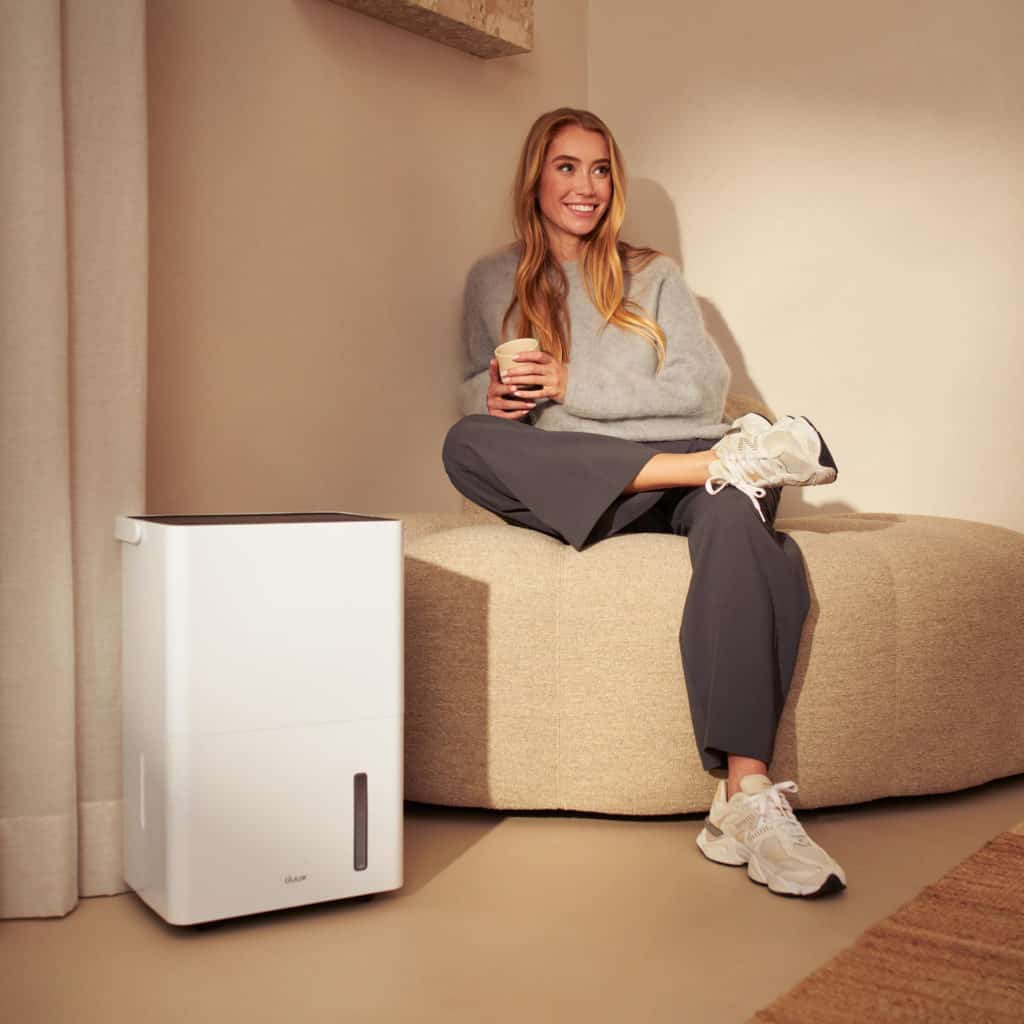
What to do about damp air in the house?
If you have a high humidity in your home you can effectively reduce it by using a dehumidifier. A dehumidifier has a compressor that sucks in air and extracts the excess moisture from it, which is then collected in a water tank, reducing the humidity in the air. Our dehumidifier Bora dehumidifier also has an active carbon filter that removes unpleasant odours from the air.
